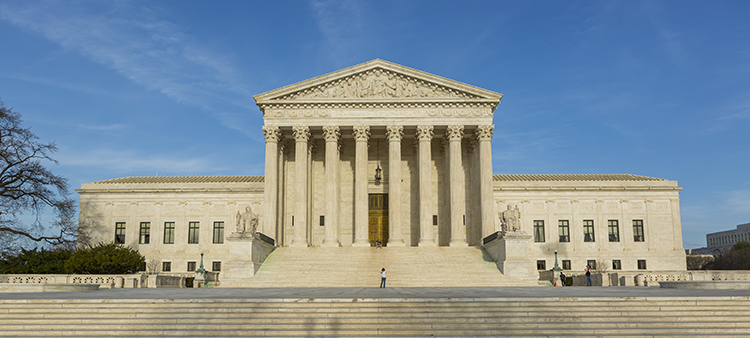Coupon, You’re On: 3 Opinions Say Lawyers May Participate in Daily-Deal Websites

Illustration by Brian Stauffer
Ethics opinions issued recently by three state bar associations suggest that it’s OK for lawyers to jump on the deal-of-the-day coupon bandwagon. The concept is straightforward. A number of websites—Groupon is probably the best known—send subscribers emails offering discounts on various products and services, which the subscribers can purchase online. The deals include meals, spa treatments, fitness plans and home repair services. There is growing interest in offering legal services through these sites, as well.
But lawyers have been scared off by concerns about how website operators collect their fees from vendors. Typically, an operator receives a percentage of each coupon or daily deal at the time it is sold, regardless of whether a purchaser actually claims the service or whether a participating lawyer ever receives his or her fee. Any fee the lawyer does receive is reduced by the amount that goes to the website operator.
FEE-SPLITTING FEARS ALLAYED
The ethics question for lawyers is whether that kind of payment arrangement amounts to fee splitting with nonlawyers, which is prohibited by Rule 5.4 of the ABA Model Rules of Professional Conduct, as well as the ethics rules of all the states. (The Model Rules are the direct basis for professional conduct codes in every state except California.)
But opinions issued late last year by the South Carolina Bar, the North Carolina State Bar and the New York State Bar Association all concluded that the fee arrangements pass muster under their versions of Model Rule 5.4. Accordingly, they gave lawyers in those states the green light to participate in deal-based websites.
“If you had a literal reading of the rule, you might think daily-deal sites are a division of fees. But if you look at the purpose of the rule prohibiting fee sharing, you come to the conclusion this is not problematic,” says Will Hornsby Jr., staff counsel for the ABA Standing Committee on Delivery of Legal Services and an authority on ethics rules relating to lawyer advertising and marketing. And all three opinions “peeled the onion,” he says, to closely examine how daily-deal arrangements differ from fee sharing between lawyers and nonlawyers that is prohibited by the ethics rules.
The South Carolina Bar’s opinion, for instance, analyzed the fee-splitting question two ways to reach the same conclusion.
Under one analysis, the fee charged by the website operator amounts to payment of the reasonable cost of permitted advertising by a lawyer rather than sharing the lawyer’s fee, states South Carolina Advisory Opinion 11-05. “The fact that the charge for this form of advertising service is deducted up front by the company rather than invoiced and then paid from the lawyer’s operating account does not transform the transaction from the payment of advertising costs into an improper fee split,” the opinion states.
The alternate analysis takes the approach that the transaction does constitute fee splitting. But the arrangement still is permissible, states the opinion, “provided the website does not have the ability to exercise any control over the services which are to be subsequently rendered by the attorney.” Sharing fees with a nonlawyer “may be permitted where the circumstances do not suggest any encroachment on the lawyer’s independent judgment,” the opinion notes.
“I’m confident that kind of arrangement is not an improper sharing of fees with a nonlawyer,” says Michael J. Virzi, a legal writing instructor at the University of South Carolina in Columbia who chairs the state bar’s ethics advisory committee. “Say I recommend a lawyer because he will give me a kickback; then the consumer is not getting an honest recommendation. These websites aren’t really recommending anyone. They will take as many advertisements as there are lawyers who want to advertise.”
While the opinions agree that it is permissible for lawyers to participate in daily-deal websites, they all caution lawyers to use the sites carefully to avoid other potential ethics pitfalls.
One problem to avoid is the premature or improper formation of a lawyer-client relationship. A lawyer should run a conflicts check before under taking the representation and determine that he or she is competent to represent the client in the matter. If the lawyer determines that the relationship should not go forward for either of those reasons, the lawyer should give the coupon holder a full refund.
Lawyer communications related to coupon offers also must meet lawyer advertising requirements set forth in the state versions of Model Rules 7.1 and 7.2, the opinions state. “The offered discount must not be illusionary, but must represent an actual discount from an established fee for the named service. Otherwise the advertisement would be misleading,” states Opinion 897, issued by the New York bar on Dec. 13.
PROPRIETY CONCERNS
The opinions may be helping to carve out some new thinking about how law firms communicate their fee information to potential clients, says Ronald C. Minkoff, a partner at Frankfurt Kurnit Klein & Selz in New York City.
Traditionally, he notes, some in the profession have frowned on attorneys advertising discounted legal services. “There have been people who say that’s not appropriate,” says Minkoff, who heads up his firm’s professional responsibility group. “It makes us look like we’re in the bazaar, not practicing law. But courts say you’re allowed to do that. You’re letting people know what your prices are.”
Some ethics experts say deal-based advertising is appropriate for flat fees, but not retainers or legal services provided on an hourly basis. Minkoff disagrees. A lawyer could, he says, offer a $3,000 retainer for $1,500. “As long as the advertising is not misleading, it’s understood what the $1,500 will buy and you’re competent to do the work, I don’t see where it would be more of a problem than anything else.”
The opinions differ a bit on what should happen if the purchaser of a discount coupon for legal services doesn’t use it.
The North Carolina bar’s Formal Ethics Opinion 10 (issued Oct. 21) states that if a coupon purchaser fails to claim the legal service before the coupon’s expiration date, the lawyer must refund the payment. If the purchaser still wants to hire the lawyer after the coupon expires, the lawyer may charge his or her actual rate, crediting the client’s coupon payment toward the bill.
Alternatively, the New York opinion concludes that a lawyer “is entitled to treat the advance payment received as an earned retainer for being available to perform the offered service in a given time frame.” (The South Carolina opinion doesn’t address the issue specifically.)
Minkoff is surprised that the New York opinion doesn’t address the question of whether coupons should have expiration dates. “The notion of putting some kind of time pressure on a person to make a decision,” he says, “is not something that people would be happy with, with our rules.”
GOOD BUSINESS MODEL?
The practical question is whether online coupon advertising will catch on with lawyers.
Robin Iori, a marketing director based in Chicago, notes that using such services might be limited to one-time hits, rather than the repeat business most lawyers want. “I don’t necessarily think it would build a really great practice because you’re going in with the idea of discounting it from day one,” she says. But, she notes, younger legal consumers—who grew up with the Internet—might find coupon sites a desirable way to seek out legal services.
In Minkoff’s view, coupon sites might be one more marketing approach worth trying. “There are plenty of lawyers who advertise and get strange people coming off the streets based on ads. That’s their business model,” he says.
“I couldn’t really see doing it myself personally. But in my view, if people think it can work and it makes legal services more accessible, then it’s a good thing.”
Updated April 27 because the online version of this article misspelled Robin Iori’s name.



